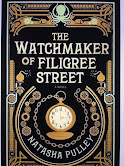Looking Back at Star Trek's 50th: A Review of The Fifty Year Mission by Theresa Gauthier
If there was one thing I knew for certain, it was the the United States knew how to make a buck. I anticipated a similar flood in 2015 and 2016 to celebrate Star Trek. I started making mental lists of all of the things I had to track down; t-shirts, tote bags, mugs, books, phasers, posters. I imagined watch parties cropping up as the show became more widely available on television and streaming, and maybe even a special anniversary special or two. I was giddy with anticipation.
When the time came, what greeted me?
Crickets.
The coming and going of the 50th Anniversary of the show that had created the concept of fan conventions and launched multiple television shows and a dozen movies—not to mention games, books, and all sorts of merchandise—was marked only with a single marathon on cable TV—and, with a touch of irony, that aired on BBC America.
What happened? How had the money machines of US marketing missed this opportunity?
The only thing I could find that came close to satiating my desire to mark Star Trek’s milestone was the two volume book set The Fifty Year Mission: The Complete, Uncensored, Unauthorized Oral History of Star Trek.
The previous 50 years had seen no shortage of books that explored the origins of the show and the behind the scenes magic of its creation. Going back to the sixties and seventies, these have been gobbled up by a grateful audience.
These new books were different. They took a unique look at the history of the show. Rather than relying on a single author’s narrative, it tells about Star Trek’s inception and growth from the point of view of everyone involved.
The first volume, The First 25 Years, dives into the original series, the animated series that aired on Saturday mornings in the early ‘70s, and the first six films. Pieced together from interviews from dozens of people involved in the creation of the original series—stars, writers, producers, fans—everyone has something to say, and it’s all compiled here.
Authors Edward Gross and Mark A. Altman made the most of the unprecedented access touted on the book’s cover. Through exhaustive research and interviews with actors, writers, producers, crew, fans, they assemble these opinions in a cohesive compilation that explores details that have slipped through the cracks of history until now.
Told in a series of paragraphs and passages with the speaker’s name in capital letters so you can’t mistake whose words you’re reading, the quotes are arranged so that they do give a linear progression, a cohesive story, and tell the tale of the evolution of Star Trek from concept through the films.
Each name I read gave me a thrill of recognition, a joy only memory can conjure as I recalled the names I’d read in the oldest books I own or names I knew from the credits on the Original Series, the Animated Series, and the films. Learning from them what they’d been through, what they’d contributed, and what they’d witnessed as television and pop culture history was made was emotional for a lifelong Trekkie, to say the least.
I admit there was a lot more here that I didn’t know. I wondered how they’d manage to cover so much material without having the book double in size. They managed it. They cover each incarnation of Star Trek, revealing a lot and hinting at more.
There are a lot of opinions in the books, of course, and we’re only seeing what people are willing to share. What they share is enough to make any Trekkie giddy with excitement.
I devoured these books when I got them, and though I was irritated that there wasn’t more available at the time, I admit that I loved both volumes a lot more than I thought I would. The books cover a lot of ground, and they do it well. Details, quotes, memos, and opinions from everyone involved in the development of Star Trek in the last 50 years make for a fun, informative and satisfying read. Immerse yourself in your fandom—these volumes are well worth it.
I imagine we’ll need a third volume someday—maybe Another 25 Years?








Comments
Post a Comment